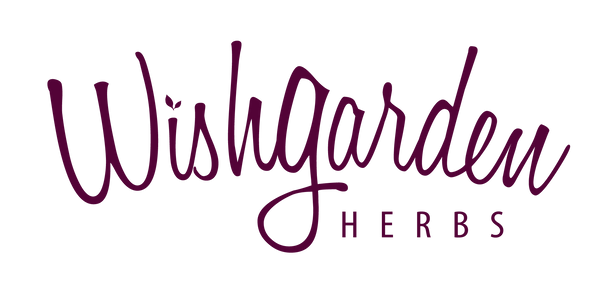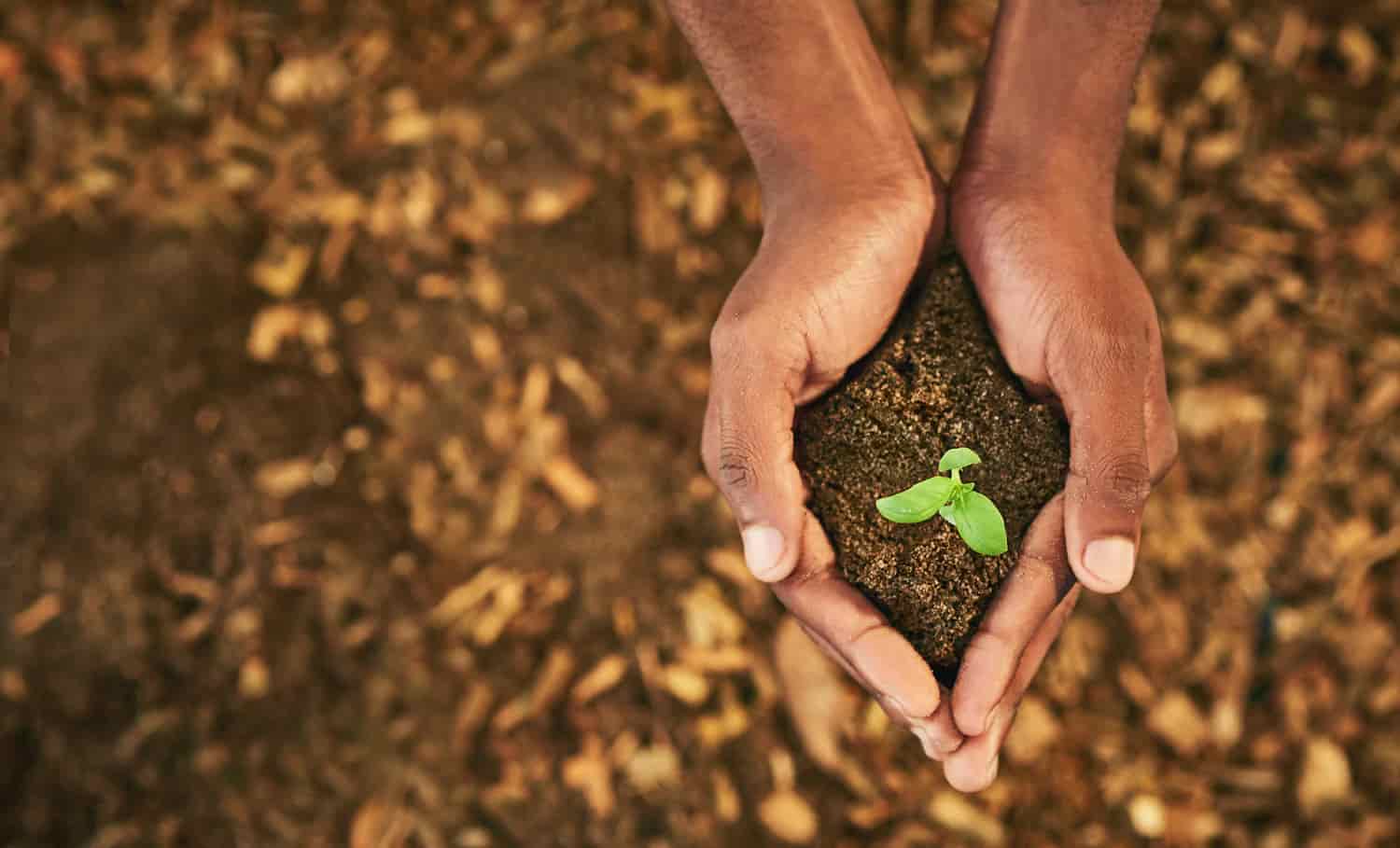
Herbalism 101: What Is Herbalism?
Written by Rebecca Younger, CH, CDShare
Herbalism is a green-glowing gateway to wellness. Think of it as plant-powered wisdom that links ancient roots with modern-day living. It’s not just a dusty old tradition for woodland witches. It’s a living, breathing practice that’s helped humans feel better for thousands of years and still fits perfectly into your daily routine.
So, what exactly is herbalism? At its heart, herbal medicine is a holistic approach to health. It leans into the healing power of medicinal plants while keeping an eye on the potential adverse effects of conventional treatments. Unlike conventional medicine, which often zooms in on symptoms, herbalism sees your body as one big interconnected system. The goal is homeostasis, not just a quick fix.
When you step into the world of herbal remedies, you're not just chasing symptom relief. You're stepping into a health tradition that’s been practiced across cultures for generations. From Traditional Chinese Medicine to Indigenous healing traditions, people all over the world have long known that plants hold serious wellness potential.
Now science is catching up. Studies are starting to confirm what herbalists have known all along: plants are kind of a big deal. They’re full of therapeutic compounds that can help with everything from stress and sleep to digestion and immunity. And while herbal supplements are gentle, they’re no wimp. These plants pack a punch and often come with fewer side effects than conventional options.
By learning the basics of herbal medicine, you’re taking a proactive step toward a lifestyle that feels more balanced and more in tune with your body, which can enhance communication with your healthcare providers. It’s a path that blends traditional herbal practices with modern science to support your health naturally.
Ancient Wisdom Meets Modern Science
Herbal medicine isn’t stuck in the past. It's evolving and growing, now backed by scientific studies and lab research. We’re talking real-deal research, not just anecdotal stories. That age-old wisdom? It’s finally getting the data it deserves.
According to the World Health Organization, about 80% of people around the world still rely on herbal medicine as their primary health care. That's a big chunk of the global population who trust plants to keep them well. And now, modern labs are pouring resources into studying those same plants. The result? A beautiful fusion of traditional medicine and science.
Today, you’ll even find medical herbalists working alongside doctors and nurses in integrative health centers. These practitioners use time-tested herbal knowledge right next to evidence-based practices. It’s not a turf war between science and tradition. It’s teamwork. And that collaboration is giving us new ways to manage everything from seasonal sniffles to chronic stress.
Validating Ancient Herbal Wisdom
Thanks to advanced clinical research methods, we can now pinpoint the active compounds in herbs that make them so effective. Clinical trials and lab studies are putting herbs under the microscope, and the results are exciting.
This kind of validation is helping herbalism gain more respect in mainstream health care. More and more practitioners are blending conventional treatments with herbal remedies and dietary supplements, offering a more holistic take on healing. And with clearer FDA guidelines on the horizon, herbal supplements are becoming safer and more accessible for everyone.
Bottom line? The gap between ancient tradition and modern health care is getting smaller, as herbalism is increasingly recognized as an alternative therapies. And in that space of complementary and alternative medicine, we’re discovering powerful new ways to support our health, naturally.
Some of the biggest breakthroughs are happening in these areas:
- Research Validation: Scientists are confirming what traditional healers already knew. Many medicinal plants work, and now we have the data to prove it.
- Clinical Integration: Hospitals and clinics are starting to include herbal medicine in treatment protocols.
- Drug Development: Pharma companies are using herbs as a starting point for new drugs.
- Treatment Innovation: Herbal practices are inspiring new ways to approach persistent health issues.
- Preventive Care: Traditional wellness philosophies are being used to shape modern preventive strategies.
This blend of old-school wisdom and high-tech research is giving us the best of both worlds.

Sustainable Practices in Plant Medicine
Herbal medicine and environmental care go hand in hand. For centuries, traditional herbalists have known that the health of people and the health of the planet are closely connected. That’s why sustainability has always been a part of herbal wisdom, even if it wasn’t called that back in the day.
Today, more herbal brands and practitioners are getting serious about sustainability. That means making sure the plants we use today are still around for the next generation. It also means protecting the ecosystems that make these herbs possible in the first place.
If you're diving into herbalism, it helps to know how your herbal choices affect the planet. Ethical sourcing is more than a buzzword. It’s about preserving traditional knowledge, protecting endangered plants, and making sure the people growing and harvesting these herbs are treated fairly.
It also means giving the elders in our communities a seat at the table, and a mic. Their lived experiences, stories, and wisdom are the heartbeat of herbal traditions. By creating platforms for them to share and pass down their knowledge, we’re not just preserving the past. We’re planting the seeds for a more rooted, resilient future.
Ethical Herbalism in Practice
When you’re using herbal remedies or making your own blends, sourcing matters. It’s not just about what’s in the bottle. It’s also about where it came from and how it was grown or wild-harvested.
Many herbal practitioners today are working directly with Indigenous communities. These partnerships help protect ancient knowledge and provide fair compensation to the people who’ve carried these traditions forward. It’s about honoring the roots of herbal medicine while also keeping those roots strong and intact.
And the movement doesn’t stop there. Herbal producers are now using low-waste methods to process herbs. Local sourcing is gaining traction too, which helps cut down on emissions and supports local ecosystems. Every choice, from how herbs are grown to how they’re packaged, makes a difference.
Some key pillars of sustainable herbalism include:
- Protecting at-risk plant species
- Honoring and preserving traditional knowledge
- Supporting fair trade and ethical labor
- Using zero-waste or minimal-waste production methods
- Encouraging local and regional sourcing to reduce the carbon footprint
When you support sustainable herbalism, your choices ripple out. You're not nourishing not just your body, but the communities, ecosystems, and traditions behind every bottle and blend. Here are a few of the key ways ethical herbal practices are making a real impact:
- Regenerative Growing: Wild-simulated cultivation methods preserve natural ecosystems while producing potent, medicinal herbs
- Indigenous Partnerships: Fair-trade relationships ensure traditional knowledge holders receive proper compensation and recognition
- Local Cultivation: Regional growing programs reduce carbon footprint and support community herbalists
- Waste Reduction: Complete plant utilization minimizes processing waste and maximizes resource efficiency
- Species Protection: Conservation programs safeguard endangered medicinal plants for future generations
- Ethical Wildcrafting: Sustainable harvesting practices maintain wild plant populations and ecosystems
Your Herbal Wellness Journey
Herbalism isn’t one-size-fits-all, and honestly, we love that about it! Modern herbalists are blending ancient plant wisdom with high-tech tools to craft modern herbal medicine protocols that fit you like your favorite hoodie (comfy, reliable, and totally personalized).
These new-school practitioners look at more than just symptoms. They consider how your body works as a whole and tailor herbal support that grows and evolves with your unique needs. Thanks to digital tracking tools, you can now fine-tune your herbal routine, track patterns, and adjust based on real-time feedback from your body.
Building Your Herbal Support System
Imagine opening your kitchen cabinet and finding a mini herbal apothecary, stocked with remedies you actually know how to use. That’s the power of building your own herbal support system. When you have the right herbs on hand, everyday bumps in the road become easier to handle.
A home apothecary makes herbal medicine feel less like folklore and more like second nature. It also deepens your connection to what you’re putting in your body, which—let’s be real—feels pretty darn empowering!
The trick? Stay flexible. Your herbal needs shift with the seasons, your stress levels, and life’s curve balls. Keeping your wellness game strong means checking in with your body and adjusting as you go.
Here are a few go-to tools for building a resilient, personalized herbal routine:
- Assessment Tools: Keep a health journal to track your responses and notice patterns over time
- Seasonal Transitions: Change up your herbal game as the weather (and your body) shifts
- Custom Formulations: Tailor blends to your specific needs, goals, and constitution
- Progress Monitoring: Use digital platforms to keep tabs on what’s working
- Support Network: Stay connected with your favorite herbalist or community to get feedback and stay accountable
Learning to listen to your body is the real herbal superpower. Combine that with time-tested plant wisdom and smart tech, and you've got a recipe for vibrant, evolving wellness.
Modern Science Validates Plant Medicine
Turns out, Grandma’s remedies were ahead of the curve. Thanks to breakthroughs in science, we now know that those bitter teas and earthy tinctures are loaded with bioactive compounds that support your health in seriously powerful ways.
Labs across the globe are digging deep and mapping out which plant parts do what, running clinical trials, and even fine-tuning how your body absorbs herbal compounds. According to the National Institutes of Health, over 12,000 plant compounds have shown therapeutic potential. That’s a whole lot of healing packed into leaves, roots, and petals.
Modern science is also helping herbal formulas level up. We’re talking smarter delivery methods, better absorption, and more consistent quality. So when someone says botanical medicine is “woo,” feel free to drop some peer-reviewed facts on them.
Understanding Plant Medicine Mechanisms
Science is doing a lot more than giving herbs bragging rights. It’s uncovering how these plants actually work in the body, right down to the cellular level. Researchers are mapping out how certain herbal constituents influence biological systems, support cellular function, and spark changes in your body’s own healing response.
Even better? Labs are dialing in the details with next-level quality control. Think: precise potency, verified purity, and no mystery ingredients. This is what gives you peace of mind when choosing herbal supplements, because you deserve to know what’s going in your body.
Safety Through Scientific Research
Let’s talk safety, because knowledge is power. Today’s herbal research is shining a light on drug herb interactions, which means you don’t have to choose between natural and conventional, and you can blend both smartly and safely.
The American Herbalists Guild has your back with databases full of info on herb-drug interactions. That makes it easier for you and your healthcare team to integrate herbal support into your wellness plan without the guesswork.
And as clinical trials continue to back up traditional use, we’re seeing herbal remedies get more recognition in addressing everything from uplifting the mood to joint support. This growing body of research bridges that age-old gap between plant lovers and lab coats, and we’re definitely here for it.
Daily Herbal Wellness Rituals
Small rituals make a big difference. Adding herbs to your daily routine can help you feel more grounded, balanced, and just generally like you’ve got your life together. According to the National Center for Complementary and Integrative Health, consistent use of herbal remedies can improve sleep and stress by up to 45%. That’s a pretty sweet return on a cup of herbal tea.
Start your morning with a gentle energizer like an adaptogen-infused tea or tincture (hello, holy basil and ashwagandha), and give your nervous system the love it deserves. Then, ease into the evening with calming classics like scullcap and passionflower to help your brain chill out.
These aren’t just cozy habits. They’re rooted in both tradition and science, and they can help you build a daily rhythm that actually supports your well-being long term.
Nourishing Your Body With Plant Power
Your spice rack is low-key a medicine cabinet. Adding herbs to your meals boosts flavor and wellness. Traditional Chinese medicine recommends warming herbs like ginger and cinnamon in cooler months and cooling herbs like mint and cilantro when temps rise.
Think of your meals as a delivery system for plant power. Each sprinkle, pour, or steep adds a little extra support to your system. Pair that with an evening routine that features relaxing herbs, and your body starts to sync with nature’s rhythms.
This isn’t about following a strict routine. It’s about adding intention and herbal love to everyday moments.
Seasonal Cleansing With Herbs
Nature shifts, and so do you. Seasonal herbal practices help you stay in flow with the changing rhythms of the year. In spring, that might mean gentle cleansing herbs like dandelion or burdock. In autumn, it’s all about immune supporters like elderberry or astragalus.
By tuning into these seasonal needs, you create space for your body to recharge and stay resilient all year long. Bonus points for building a basic herbal first-aid kit, so you’re ready when life's little emergencies come knocking.
Managing Modern Stress Naturally
Stress is basically a modern epidemic, but herbs have your back. Adaptogens like rhodiola and eleuthero help your body adapt to stress and regulate cortisol. When used consistently, they support resilience from the inside out.
Pair herbal support with healthy habits like movement, mindfulness, and sleep, and you’re not just managing stress. You’re transforming it into a chance to reset and grow.
Start simple. Choose one or two herbs, get to know how they make you feel, and build from there. Slow and steady wins the wellness race.

What Does a Herbalist Do?
Herbalists are like wellness detectives with a leafy toolkit. They look at your whole health picture (mind, body, lifestyle), and create personalized plant-based strategies to help you thrive.
They blend traditional plant knowledge with modern science, and many go through intensive training, clinical practice, and ongoing study to stay sharp. Whether you're navigating stress, digestion, hormones, or just trying to feel more balanced, a professional herbalist and your health care providers can help you find the right herbs for your unique needs.
Working with a professional herbalist is a lot like teaming up with a wellness coach who knows their elderberry from their echinacea.
Is Herbalism Legal in the US?
Yes, herbalism is legal in the United States, but with some fine print. The Food and Drug Administration regulates herbal supplements under the Dietary Supplement Health and Education Act, which means companies can’t make bold disease claims, but herbs can still be sold and used freely.
Herbalists work within a patchwork of state-level regulations. Some states offer licensure, others take a more informal approach. Groups like the American Herbalists Guild are pushing for clear professional standards while protecting your right to access herbal care.
When shopping for supplements, look for brands that follow Good Manufacturing Practices (GMPs) and offer transparency about sourcing and testing. These standards help make sure you’re getting quality herbs that work and align with your values.
Herbal Wisdom Transforms Your Wellness Journey
Herbalism is more than just plant science or old-world healing. It’s a lifestyle shift that reconnects you with nature and brings balance back into your life.
This isn’t about choosing between tradition and innovation. It’s about blending the two and honoring the ancient wisdom while embracing what modern science has to offer.
When you lean into herbal wellness, you're choosing a path that’s intuitive, responsive, and deeply rooted in the natural world. It’s your body. Your health. Your journey.
And herbs? They’re just here to help you along the way.
Rebecca Younger is passionate about herbs and women's health. She aspires to plant seeds of inspiration within her community about plant medicine and healthier ways of life. She studied Herbal Medicine at Herbalism Roots in Denver and is a certified Doula through the Matrona Foundation. She is the Brand Communications Specialist at WishGarden Herbs.
For educational purposes only. This information has not been evaluated by the Food and Drug Administration. This information is not intended to diagnose, treat, cure, or prevent any disease, or to sell any product.





















